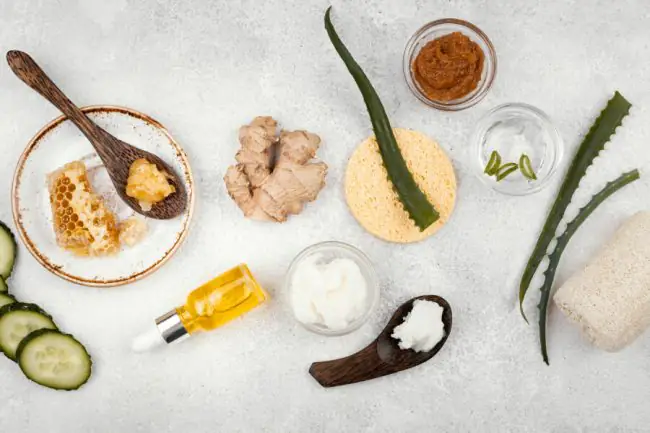Ulcerative Colitis: 4 Effective Treatments You MUST Try
Ulcerative colitis is a chronic inflammatory bowel disease that affects millions worldwide, particularly in Spain.
Living with this condition can be challenging, but understanding effective treatment options can make a significant difference.
Struggling with ulcerative colitis? These four effective treatments will help manage your symptoms and improve your quality of life.
Ulcerative Colitis
It is an autoimmune condition that causes inflammation and ulcers in the colon, leading to various gastrointestinal symptoms.
The exact cause of this disease is still unclear, but genetics, immune response, and environmental factors may play a role.
Symptoms
Recognizing the symptoms is important for early intervention and management. Common symptoms include:
- Frequent diarrhea, often with blood or mucus
- Abdominal pain and cramping
- Fatigue and a feeling of weakness
- Urgency to have bowel movements
- Weight loss and loss of appetite
These symptoms can vary in severity, often presenting in flare-ups followed by periods of healing.
Understanding your body’s signals can help you communicate effectively with healthcare professionals.
Regular exercise
- reducing disease progression and activity
- boosting immune health
- improving mood and quality of life
- strengthening bones
If you’re not sure where to start, the Crohn’s and Colitis Foundation recommends these low-impact, UC-friendly workout options:
- walking
- cycling
- swimming
- rowing
- yoga
Herbal Remedies
- Aloe Vera Gel
- Turmeric (Curcumin)
- Probiotics
- Boswellia (Indian Frankincense)
- Wheatgrass juice
- Vitamin D
Probiotics
Probiotics are beneficial bacteria that can help restore balance in the gut microbiome, which is often disrupted in people with ulcerative colitis.
Lactobacillus and Bifidobacterium strains are commonly used probiotics that may help reduce inflammation, improve digestion, and lower the frequency of flare-ups. Fermented foods like yogurt, kefir, sauerkraut, and kimchi are natural sources.
Omega-3 Fatty Acids
Omega-3s, found in fatty fish (like salmon and sardines), flaxseeds, and walnuts, have anti-inflammatory properties that may benefit those with ulcerative colitis. Consider adding them to your diet. These healthy fats may help reduce intestinal inflammation and support overall gut health.
Omega-3 supplements, such as fish oil, have also shown potential in managing ulcerative colitis symptoms. However, they should be used cautiously, as high doses may have side effects.
Aloe Vera
Aloe vera has natural anti-inflammatory properties and is sometimes used to soothe the digestive tract.
Aloe vera juice may help reduce inflammation in the colon and ease ulcerative colitis symptoms, although more research is needed.
Go for high-quality, pure aloe vera juice and avoid additives, but use it under medical supervision, as aloe can cause digestive discomfort in some individuals.
Herbal Supplements (e.g., Turmeric and Boswellia)
Turmeric, particularly its active compound curcumin, has strong anti-inflammatory effects.
Curcumin may help reduce symptoms and maintain remission in ulcerative colitis.
Boswellia serrata, another anti-inflammatory herb, has also been shown to reduce symptoms and is considered safe for long-term use in some people with ulcerative colitis.
Both herbs can be taken as supplements, but it’s best to seek advice from a healthcare provider for appropriate dosages.
Natural treatments are not a substitute for standard therapies but can be supportive in managing symptoms when used responsibly. It’s always advisable to work with a healthcare professional to ensure these treatments are safe and effective alongside your current ulcerative colitis management plan.
Diet and Nutrition Strategies
Adopting a well-balanced diet tailored to your needs can make a significant difference in managing ulcerative colitis.
- Low-Residue Diet: During flare-ups, a low-residue diet may help minimize bowel irritation. Focus on easily digestible foods like white rice, bananas, and applesauce.
- Hydration: Staying well-hydrated is important, especially if experiencing diarrhea. Aim for at least 8-10 glasses of water daily.
- Trigger Foods: Identifying and avoiding trigger foods that worsen symptoms is essential. Common guilties include caffeine, alcohol, and high-fiber foods.
Mind-Body Techniques for Stress Management
Stress can increase symptoms. Consider adding mind-body techniques to your routine:
- Yoga and Meditation: These practices promote relaxation and stress reduction, helping to reduce symptoms.
- Cognitive Behavioral Therapy (CBT): CBT can assist in managing stress and anxiety related to living with ulcerative colitis.
Surgical Options
While most people with ulcerative colitis can manage their condition with medications, surgery may become necessary for some.
When Surgery is Necessary for Ulcerative Colitis
Surgery is generally considered when:
- Medications fail to control severe symptoms.
- Complications arise, such as bowel perforation or severe bleeding.
- Patients develop dysplasia or cancer.
Types of Surgeries
- Colectomy: The surgical removal of the colon can cure ulcerative colitis. In many cases, this procedure may be combined with creating an ileal pouch to maintain bowel function.
- Ileal Pouch-Anal Anastomosis (IPAA): This surgery creates a pouch from the small gut, allowing for more normal bowel movements after colon removal.
Wellness Practices to Improve Quality of Life
Living with ulcerative colitis requires not just medical treatment but also support and wellness practices.
Connecting with others who share similar experiences can be invaluable. Support groups can offer emotional support, resources, and practical advice on living with it.
Add wellness practices to your routine can improve your quality of life:
- Regular Exercise: Engaging in regular, low-impact exercise can help reduce stress and improve overall well-being.
- Mindfulness and Relaxation: Practices such as mindfulness meditation can help manage stress and promote a sense of calm.
Conclusion
Ulcerative colitis can be a challenging condition to manage, but understanding effective treatments and making informed decisions can empower you on your journey to better health.
From conventional medications to lifestyle changes and emerging therapies, numerous options are available.
Always consult with a healthcare professional to create a personalized treatment plan that best suits your needs.
FAQs
What is the most successful treatment for ulcerative colitis?
The effectiveness of treatment varies among individuals. Aminosalicylates and biologics are often considered highly effective.
What is the new treatment for ulcerative colitis in 2024?
New biologics and JAK inhibitors are emerging as promising treatments in 2024.
What is the miracle drug for ulcerative colitis?
While there is no “miracle drug,” biologics have shown remarkable success for many patients.
What is the ultimate cure for ulcerative colitis?
Surgical removal of the colon can provide a cure, but it is usually considered a last resort.







